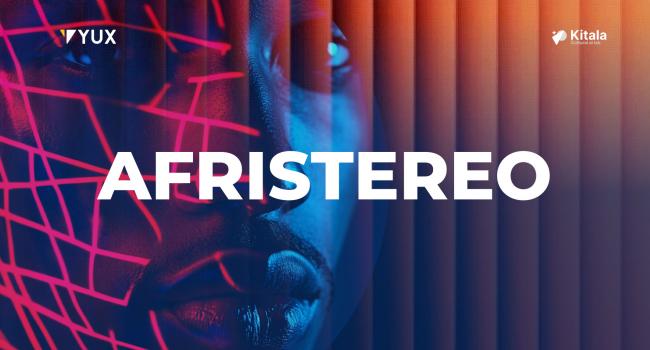Interview of YUX co-founders Yann, Daniel and Camille by blogger Samir Abdelkrim originally publish on the Orange Entrepreneurs’ blog.
Hey Guys ! What is Yux ? What is your vision and how did this adventure begin?
YUX is a young enterprise which specialized in user experience design or UX Design. Our aim is to design original digital products that suit the needs of African populations — based on field studies and the application the various methods of Design Thinking. The adventure began in May 2016 when several fans of design and technology came to the conclusion that:
- 1) Senegalese and African startups in general are lacking of good user experience and graphic design for their interfaces
- 2) We use only few original digital products based on our needs, and startups often try to reproduce foreign solutions and models.
From there, the YUX team emerged and we started by giving training workshops to developers, graphic designers or entrepreneurs. Since then, we have also supported several companies in the design of new digital products and most importantly, ran various field studies.
User Experience, ergonomy or design … What exactly are we talking about when it comes to UX?
The User Experience (UX) refers to the experience of a person or community using a particular product, system or service. It is a set of concrete methodologies that help make a system easy to use, intuitive, ergonomic and logical. As a result of ergonomics and human sciences, user experience design tends towards the increase of satisfaction associated with the use of functions by continuously improving the form, the background and the accessibility.
Ergonomics appears as an older term that people know better and the ergonomist is often one of the people in charge of designing a good user experience. But UX Design also requires other specialists such as the web / UI designer who deals mainly with the visual and graphical aspects of the interfaces, the information architect, the usability expert, the expert in user research, etc.
Is this a well-known concept in French-speaking Africa? Is local demand important?
No, we still have a lot of work to do! This is an entirely new field in French- and English-speaking Africa. Apart from South Africa, there are only two or three companies specialized in UX in sub-Saharan Africa to our knowledge. Honestly we think that “bankable” demand (that is, people that are willing to pay!) has not been reached yet, even if there is a strong need. That is the reason why we do not focus on business services at the moment but rather invest in our own studies and products. However, we are glad we have been able to work with companies like Orange, Société Générale or the UNFPA, who rapidly trusted us.
Is the user experience different between Dakar and Paris?
Yes and no. Some products like Facebook and Google have created standards in terms of use that people quickly take ownership of. However, there is also a multitude of local specificities, due to the fact that people discover the web via the mobile and not the PC, to connectivity, to business needs and organization, to literacy, etc. But we want to study all this much more closely to know what functions or emotions are associated with colors, gestures, sounds, icons, etc.
For now we have carried out two studies: one on sharing economy in Senegal and another on street merchants. The results of these studies are shared online in order to help entrepreneurs to think about innovative concepts from field analysis.
And between Dakar and Abidjan, can we really talk about significant differences in the user experience?
We think so because the uses are related to the psychology which is itself influenced by many local factors, including culture, language, environment, etc. But there is not enough data to say it precisely today. It would also be interesting for the ecosystems of the two countries to have insights on this from Orange or its partners like Jumia.
In practical terms, at what point does the question of user experience come into play when a developer or entrepreneur starts his project?
It can intervene from the beginning of the project, where it is particularly useful for discovering users and quickly testing hypotheses. We should then work on it regularly and especially when the startup grows and touches new types of customers. Even if it’s ideal, you can at first be able to do without a full-time designer and make use of punctual consultancy. The most important thing is that your team understands the approach and always listens to its users. In general it appears that when growing up things become more complex and that a team of UX designers allows you pass from the startup to the company stage
In 5 bullet points, what is the ideal checklist when you want to include a UX approach when creating a mobile application or an Internet platform in Africa?
- Let’s get a coffee together!
- Specify the business objectives of your application;
- Make an analysis of the needs and desires of your users through field studies, focus groups, interviews and data analysis;
- Brainstorm to develop new concepts or give new orientations based on listening to your customers and also meeting your business aims;
- Design wireframes and prototypes (without code) to quickly test your assumptions within your team or with your users;
- Receive feedback, improve your prototype and finally build the beta version of your application.
Once the application is launched, it becomes necessary to set up simple mechanisms to listen to the feedbacks of your users on a regular basis. Think about involving the whole team — salespeople, developers, product manager, etc. in the UX approach — so that everybody understands the benefits of the process and works on your side.
Have fun and check our new website !



